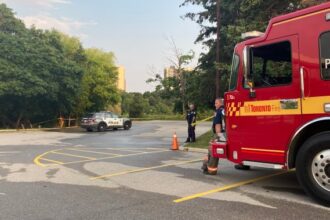In a significant legal development that has reignited national conversations about terrorism and hate crimes, Nathaniel Veltman, the man convicted of murdering four members of a Muslim family in London, Ontario, has formally filed an appeal against his convictions. Court documents obtained by CO24 reveal that Veltman is challenging the landmark verdict on three specific grounds, marking a controversial new chapter in one of Canada’s most devastating domestic terror attacks.
The June 2021 attack sent shockwaves through Canada when Veltman deliberately drove his pickup truck into the Afzaal family while they were out for an evening walk. Salman Afzaal, 46, his wife Madiha Salman, 44, their 15-year-old daughter Yumna, and Salman’s 74-year-old mother Talat were killed, while the couple’s nine-year-old son was seriously injured but survived.
“This appeal represents an extraordinary challenge to what many legal experts considered an open-and-shut case,” explains criminal law professor Elaine Richardson from the University of Toronto. “The evidence presented during trial established clear premeditation and ideological motivation.”
In February, following a lengthy trial in Windsor, Ontario, Veltman was found guilty of four counts of first-degree murder and one count of attempted murder. The jury also determined these acts constituted terrorist activity – the first time in Canadian history that murder charges prosecuted under the Criminal Code received terrorism designations without additional terrorism charges.
According to appeal documents filed with the Ontario Court of Appeal, Veltman’s legal team is contesting the verdict on three specific grounds. First, they claim the trial judge erred in refusing to allow the defense to present evidence about Veltman’s mental state. Second, they argue the judge improperly instructed jurors regarding the terrorism provisions. Finally, they contend the terrorism designation should be struck because the relevant section of the Criminal Code allegedly violates constitutional rights.
“The terrorism designation was particularly significant in this case,” notes national security analyst Martin Dawson. “It acknowledged that attacks targeting specific religious communities represent not just individual crimes but threats to our collective security and social fabric.”
The Muslim community in London continues to grapple with the tragedy’s aftermath. Munir Ahmed, director of the London Islamic Centre, told CO24 News: “This appeal process forces families and community members to relive their trauma. While we respect the legal system’s processes, we must remember the human cost of these proceedings.”
The appeal has also sparked renewed discussion about Canada’s approach to domestic terrorism. Recent politics surrounding anti-terrorism legislation have highlighted tensions between civil liberties and security concerns. Legal scholars point out that terrorism cases frequently involve complex constitutional questions that higher courts must ultimately resolve.
“What makes this appeal particularly noteworthy is that it will test the application of terrorism provisions in cases involving lone actors motivated by ideological extremism,” explains former Crown prosecutor Sabrina Chen. “The outcome could significantly influence how similar cases are prosecuted in the future.”
The appeal process could potentially take years to conclude, with significant implications for both the surviving family members and Canada’s legal approach to ideologically motivated violent extremism. As this case proceeds through the appellate system, a fundamental question emerges: how can our society balance the necessary legal rights of the accused with the equally vital need to recognize and address acts of terrorism that target vulnerable communities?

























